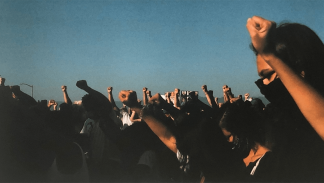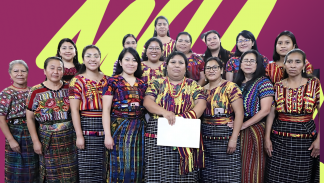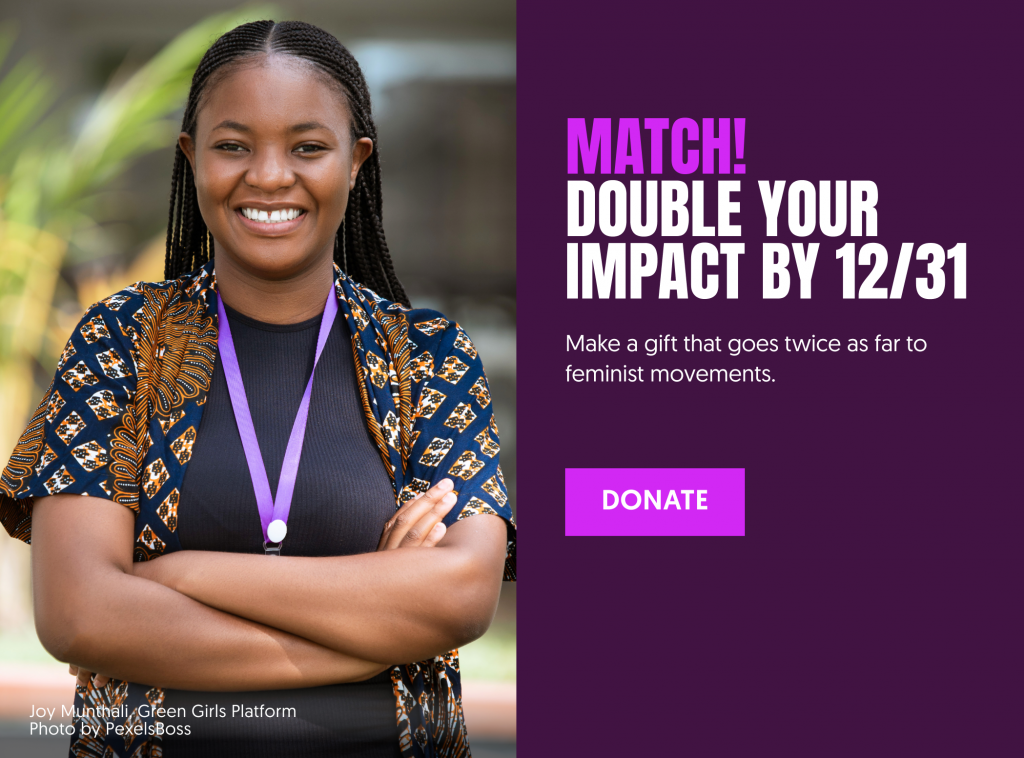What I know about activism
By Tin Tin Nyo, Women Human Rights Defender
Burmese Women’s Union
I work in Burma, one of the least developed and poorest countries in Asia. Here, almost 30% of people live below the poverty line—that number rises to almost 70% in rural areas. The political situation has been unstable for decades, and the gap between rich and poor is huge. People struggle every day just to survive.
All of this means that there are human rights violations waiting around every corner, especially for women and girls. Their lives are at risk, not just when they are out in public, but at home as well, due to domestic violence and abuse. Sadly the legal system here offers little protection. Women who fight against injustice and work to restore peace and democracy in Burma are targeted. We are threatened with imprisonment and violence so that we cannot continue to do our work as women human rights defenders.
Each of these elements is a heavy brick in a wall, making it harder for Burmese women and girls who demand respect, safety, opportunities, and equality.
But there is a way to see over this wall—in fact, to break it down piece by piece, to remove the barriers that others place in front of us, obstructing us from our rights that are ours to take. While we must commit to activism as individuals, vowing to fight against oppression despite threats, solitary action is not enough. The way to see over the wall is not by working alone, but by working together, standing on each other’s shoulders and lifting each other up. It is with solidarity, collective action, and movements that the difference is made.
Simply knowing that there is a global community of activists who support your work is incredibly empowering. Because of my work as a women human rights defender I was invited to participate in the online campaign DefendHer: Standing Together for Justice. The campaign tells stories of women human rights defenders around the globe; it also invited people to send a message to defenders like me who were included in the campaign. So far, more than 1,200 people have sent messages of solidarity, from 120 countries around the world. They range from simple messages saying “Keep it up!” to longer, personal stories about shared experiences and struggles with injustice.
Reading the messages of support from around the world made me feel like I should never be discouraged as we work for the well-being of women and those who are marginalized. There are people around the world who are cheering us on, supporting us, and embracing us. Receiving this kind of international support is an essential reminder that we are not alone. We work in a community—not just our local community, but a global community who is willing to lift each other up. This solidarity empowers any women human rights defenders—any activist—to go on with their work. We can endure all hardships with this kind of support, knowing that our struggle will ultimately lead to success.
And of course, while our situation in Burma is difficult, it is not unique. In almost every country in the world, women and girls face similar violence and opposition to their rights. Women in the U.S. (from whom we received hundreds of messages of solidarity) are right now facing their own new threats to their rights under the new Trump administration.
To all who have offered me solidarity as a women human rights defender, I now want to offer the same encouragement. The fact is this: Women in the U.S. know what kind of man Donald Trump is and how he treats women. Yet no matter who the president is, together women in the U.S. and around the globe are even more powerful. I firmly believe that if we stand together we can break down any wall. No one can break the commitment and motivation of women to make change for those who are voiceless and marginalized.
Ultimately, this is what I know about activism—and it’s true across all borders, for women in all countries: it is only as powerful as the movement behind it. And I am hopeful, because women’s movements are powerful, and growing stronger. The struggle may be slow, but there will be gradual successes. We will never give up. We will keep up the good work that we are doing and by linking our hands, we will make a better world for all women and girls.
Tin Tin Nyo works for the Burmese Women’s Union, an organization that has been fighting for gender equality, peace, and women’s political representation for more than 20 years. Burmese Women’s Union fights for the release of women political prisoners; protection for women workers including sex workers and migrant workers; rights for women refugees and international displaced people; and more. Learn more about Tin Tin’s work and organization in DefendHer: Standing Together for Justice, a campaign presented by Global Fund for Women, JASS, and MADRE.
Marking one year in global resistance
January 2018 marks a critical moment and as we look back on the past year since the U.S. Inauguration and the historic Women’s Marches around the world, we’ve seen the power of women and the power of cross-movement organizing. We’ve seen the incredible creativity of unapologetic advocates for justice working for a better world for all. Now, we are more focused, driven, and excited than ever to make the biggest difference for women and girls in the year ahead. How? Here is our roadmap for women’s rights in 2018.



